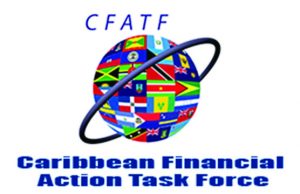Financial Action Task Force finds “a wide range of shortcomings”
 PHILIPSBURG – The meeting of parliament about establishing amendments to the Penal Procedure Code was reportedly driven by the need to tweak an amendment proposed by parliament-chair Rolando Brison and MP Claudius Buncamper. While the approval of this legislation drags on, the risk that St. Maarten will be blacklisted increases.
PHILIPSBURG – The meeting of parliament about establishing amendments to the Penal Procedure Code was reportedly driven by the need to tweak an amendment proposed by parliament-chair Rolando Brison and MP Claudius Buncamper. While the approval of this legislation drags on, the risk that St. Maarten will be blacklisted increases.
Closer inspection of the tenth follow-up report of the Caribbean Financial Action Task Force (CFATF) shows that St. Maarten is not in the clear by a long shot. The report, written after the CFATF’s plenary meeting of November 2019 in Antigua and Barbuda, mentions “a wide range of shortcomings concerning eight key recommendations.”
The CFATF recognizes that St. Maarten has taken significant steps in the right direction, but that this is not enough. The report recommends that St. Maarten be placed in the third stage of enhanced follow-up. This includes the application of recommendation 21 and the issuance of a public statement that St. Maarten insufficiently complies with FATF-recommendations.
Recommendation 21 is about tipping off and confidentiality. It reads as follows: “Financial institutions, their directors, officers and employees should be:
(a) protected by law from criminal and civil liability for breach of any restriction on disclosure of information imposed by contract or by any legislative, regulatory or administrative provision, if they report their suspicions in good faith to the FIU, even if they did not know precisely what the underlying criminal activity was, and regardless of whether illegal activity actually occurred; and
(b) prohibited by law from disclosing (“tipping-off”) the fact that a suspicious transaction report (STR) or related information is being filed with the FIU.”
The CFATF report is crammed with alphabet soup like FIU (Financial Intelligence Unit), PC (partially compliant), NC (non-compliant), MER (mutual evaluation report), SR (special recommendations) and many more. This makes reading and understanding the 82-page report a major headache.
One of the discussion points in parliament is the introduction (or rather, the regulation) of the crown witness. This has become a sore point since crown witness Ronald Maasdam made it possible for the public prosecutor to build a case against former MP Theo Heyliger in the so-called Larimar-trial.
But the CFATF-report refers to the Palermo Convention and recommends that the penal procedure code should be amended to regulate the crown witness. “No measures were identified in the law in relation to having appropriate measures to encourage persons who have participated in organized criminal groups to cooperate with law enforcement,” the report states.
Furthermore, the report notes: “Laws do not address prevention of the misuse by organized criminal groups of government tender processes.”
There are quite some other recommendations St. Maarten does not comply with; a few examples.
Customer due diligence to electronic transfers whereby essential information is absent about the client or the beneficiaries is lacking; and ongoing due diligence by financial institutions of their clients is also not in place.
Lastly, the CFATF notes, St. Maarten approved Book 2 of the Civil Code on October 11, 2019. The code regulates the disqualification of directors of legal entities. But so far, the law is not in force yet.
###
Related article:
Parliamentarians pressured to approve Penal Procedure Code, MP Samuel says
Sint Maarten 10th Follow-Up Report
Caribbean Financial Action Task Force (CFATF website)























